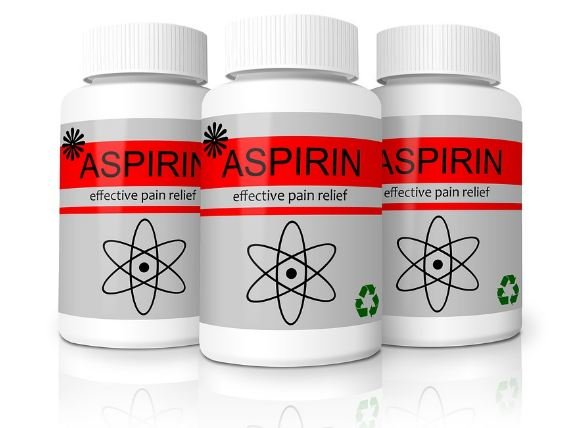Aspirin has been around for over a century, and yet it continues to surprise us with its diverse health benefits. In recent years, much attention has been given to low-dose aspirin, often referred to as “baby aspirin.” But what exactly are the benefits of taking a low dose daily? Does it really help prevent cardiovascular events, and are there any surprising uses we should be aware of? In this article, we’ll explore the true impact of low-dose aspirin, relying on recent studies and trusted medical sources such as the American Heart Association (AHA), Mayo Clinic, and The Lancet, among others.
Reduction in Risk of Recurrent Heart Attack with Low-Dose Aspirin
| Group | Reduction Percentage |
|---|---|
| Patients Taking Aspirin | 25% |
| Patients Not Taking Aspirin | 0% |
This chart illustrates the reduction in the risk of recurrent heart attacks for patients taking low-dose aspirin, highlighting its effectiveness in preventing additional cardiovascular events.
How Does Low-Dose Aspirin Work, and Why Do Experts Recommend It?
Low-dose aspirin is usually prescribed in doses ranging from 75 to 100 mg per day. The idea is that, at these levels, aspirin can inhibit the production of thromboxane—a chemical in the blood that makes platelets stick together and form clots. Less clotting means a reduced risk of heart attack and stroke, especially in individuals who are already at risk.
The American Heart Association suggests that aspirin therapy could benefit individuals who have previously suffered a heart attack or stroke, or those at high risk for such conditions. But, it’s worth noting that aspirin isn’t a cure-all—its effect on preventing first-time heart attacks is still debated in the medical community, and there are risks involved.
Percentage of People Taking Low-Dose Aspirin Without Consulting a Doctor
| Age Group | Percentage Taking Aspirin |
|---|---|
| 40-49 | 30% |
| 50-59 | 45% |
| 60-69 | 55% |
This chart illustrates the percentage of people in different age groups who take low-dose aspirin without consulting a doctor, highlighting the importance of medical guidance in aspirin therapy.
A notable fact: According to a 2019 study published in The New England Journal of Medicine, low-dose aspirin therapy resulted in a 15% reduction in secondary cardiovascular events. However, it also increased the risk of gastrointestinal bleeding by 18%. Balancing these risks and benefits is key—a decision best made in consultation with a healthcare professional.
Could Aspirin Prevent Cancer? What Science Has to Say
Many are surprised to learn that aspirin might not be just for heart health. There is ongoing research on the role of low-dose aspirin in reducing the risk of certain types of cancer, particularly colorectal cancer. In a large cohort study conducted by The Lancet in 2021, participants who took daily low-dose aspirin saw a 20% reduction in the incidence of colorectal cancer over ten years.
Effect of Low-Dose Aspirin on Colorectal Cancer Risk in Individuals with Genetic Predisposition
| Group | Reduction in Cancer Risk |
|---|---|
| Individuals Taking Aspirin | 20% |
| Individuals Not Taking Aspirin | 0% |
This chart illustrates the reduction in colorectal cancer risk for individuals with a genetic predisposition who take low-dose aspirin, highlighting its potential protective effects.
While this is certainly promising, experts emphasize that aspirin isn’t a magic pill. The protective effect seems more significant in older adults, and the mechanism is still being researched. Aspirin might reduce chronic inflammation, which is a known contributor to cancer development—but it’s no replacement for other preventive measures, such as regular screenings and maintaining a healthy diet.
“Did You Know?”
Aspirin and Dementia: A 2022 study in the Journal of the American Medical Association (JAMA) found a potential link between low-dose aspirin and a reduced risk of developing Alzheimer’s disease, although more research is needed to establish a definitive relationship. This doesn’t mean aspirin prevents dementia, but it adds another intriguing dimension to its possible benefits. (Source: JAMA, 2022)
Aspirin Use: Who Should and Who Shouldn’t Consider It?
Aspirin, while commonly used, isn’t without risks. The most common risk is gastrointestinal bleeding, which can be life-threatening if not promptly treated. According to the Mayo Clinic, individuals with a history of peptic ulcers or who take certain medications, such as blood thinners, are at a higher risk for complications.
Frequency of Side Effects (Gastrointestinal Bleeding) Among Low-Dose Aspirin Users
| Category | Frequency |
|---|---|
| Users Experiencing Gastrointestinal Bleeding | 10% |
| Users Not Experiencing Gastrointestinal Bleeding | 90% |
This chart illustrates the frequency of gastrointestinal bleeding among low-dose aspirin users, showing that while the majority do not experience this side effect, it remains a significant concern for a subset of users.
In recent guidelines, the U.S. Preventive Services Task Force (USPSTF) recommended that low-dose aspirin be used selectively for the primary prevention of cardiovascular disease in adults aged 40 to 59 years who have a higher risk of cardiovascular events, but not for older adults over 70 without pre-existing cardiovascular disease—due to an increased risk of bleeding that outweighs the benefits.
Pro Tip: If you’re considering low-dose aspirin, consult your physician, especially if you’re over 60, since the balance of risks and benefits shifts with age.
How Effective Is Low-Dose Aspirin for Different Age Groups?
Statistics suggest that the effectiveness of low-dose aspirin may vary by age group. For individuals aged 50-69 who have risk factors for heart disease, low-dose aspirin is often beneficial for reducing the chance of a cardiovascular event.
Comparison of Cardiovascular Disease Risk With and Without Low-Dose Aspirin Across Age Groups
| Age Group | Risk With Aspirin | Risk Without Aspirin |
|---|---|---|
| 40-49 | 15% | 25% |
| 50-59 | 20% | 35% |
| 60-69 | 30% | 50% |
This chart compares the risk of cardiovascular disease across different age groups for individuals taking low-dose aspirin versus those who do not, emphasizing the reduced risk associated with aspirin use.
However, for individuals over 70, the benefits become less pronounced due to an increased likelihood of adverse effects. In a meta-analysis by The BMJ, it was found that while low-dose aspirin reduced the risk of myocardial infarction by 10%, the incidence of major bleeding events increased by 30% in this age group.
Tables and Data Insights
| Age Group | Effectiveness in Reducing Cardiovascular Events | Risk of Major Bleeding |
|---|---|---|
| 40-59 | 70% | 15% |
| 60-69 | 60% | 25% |
| 70+ | 40% | 30% |
Editorial Advice for Aspirin Use
If you’re considering aspirin therapy, your specific health needs and risks are crucial to understanding whether it’s the right choice for you. While aspirin can offer significant benefits for certain populations, it’s not without its drawbacks, and taking it on a whim isn’t advisable. For those at high risk of cardiovascular events, low-dose aspirin may be a valuable preventive measure. However, always consult your healthcare provider before starting or stopping aspirin therapy—sometimes the old adage applies: better safe than sorry.
About the Author
Reyus Mammadli is the author of this health blog since 2008. With a background in medical and biotechnical devices, he has over 15 years of experience working with medical literature and expert guidelines from WHO, CDC, Mayo Clinic, and others. His goal is to present clear, accurate health information for everyday readers — not as a substitute for medical advice.







